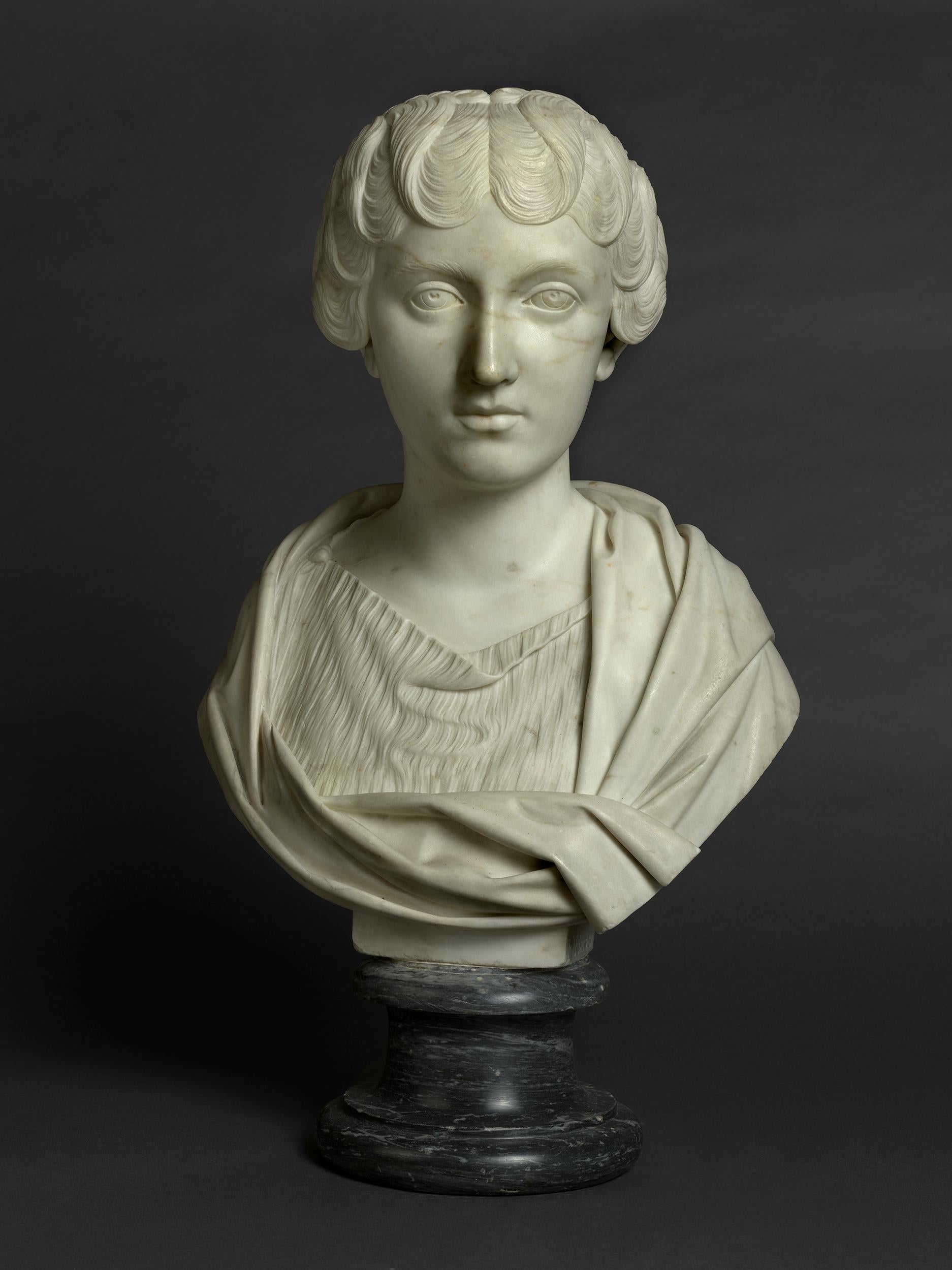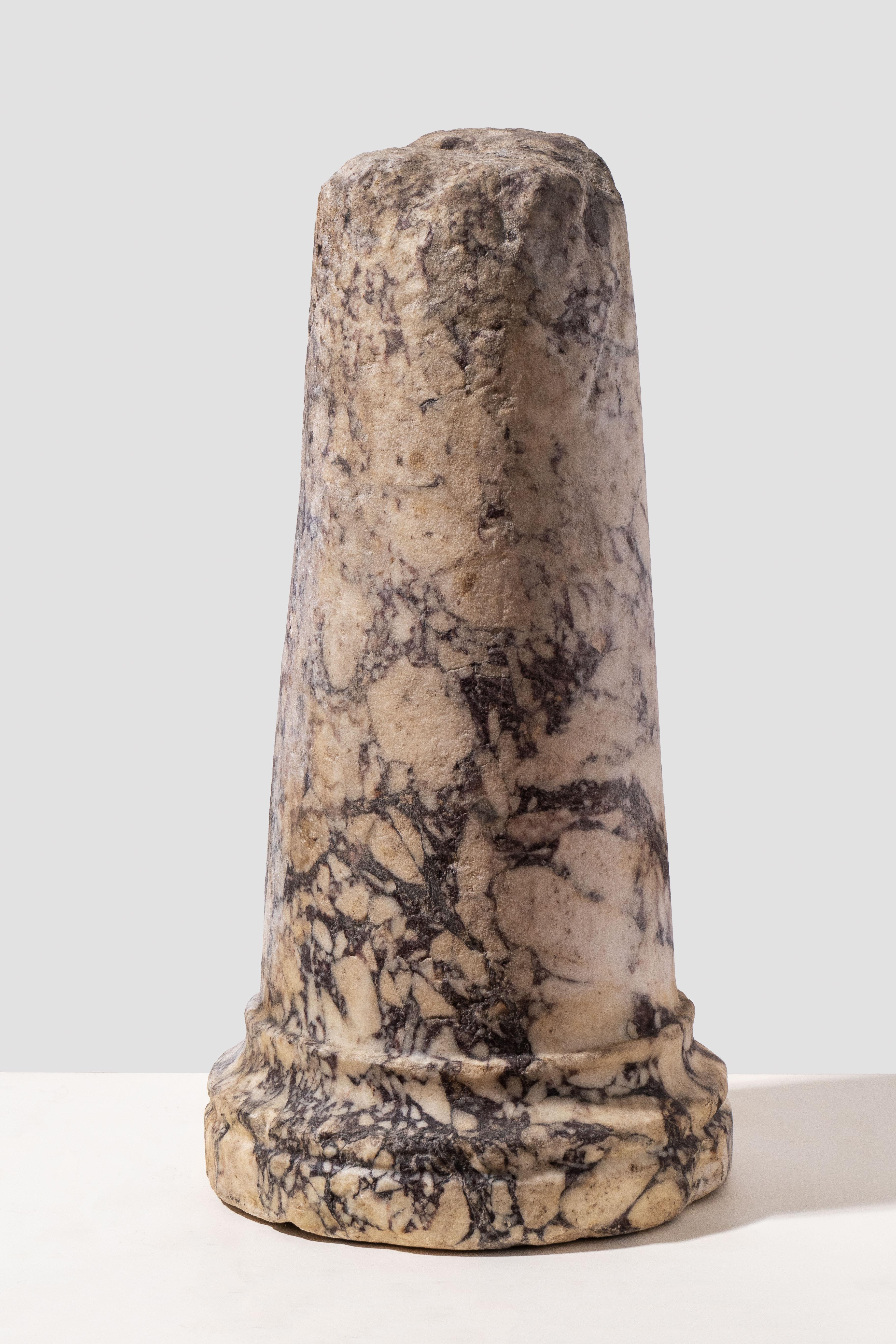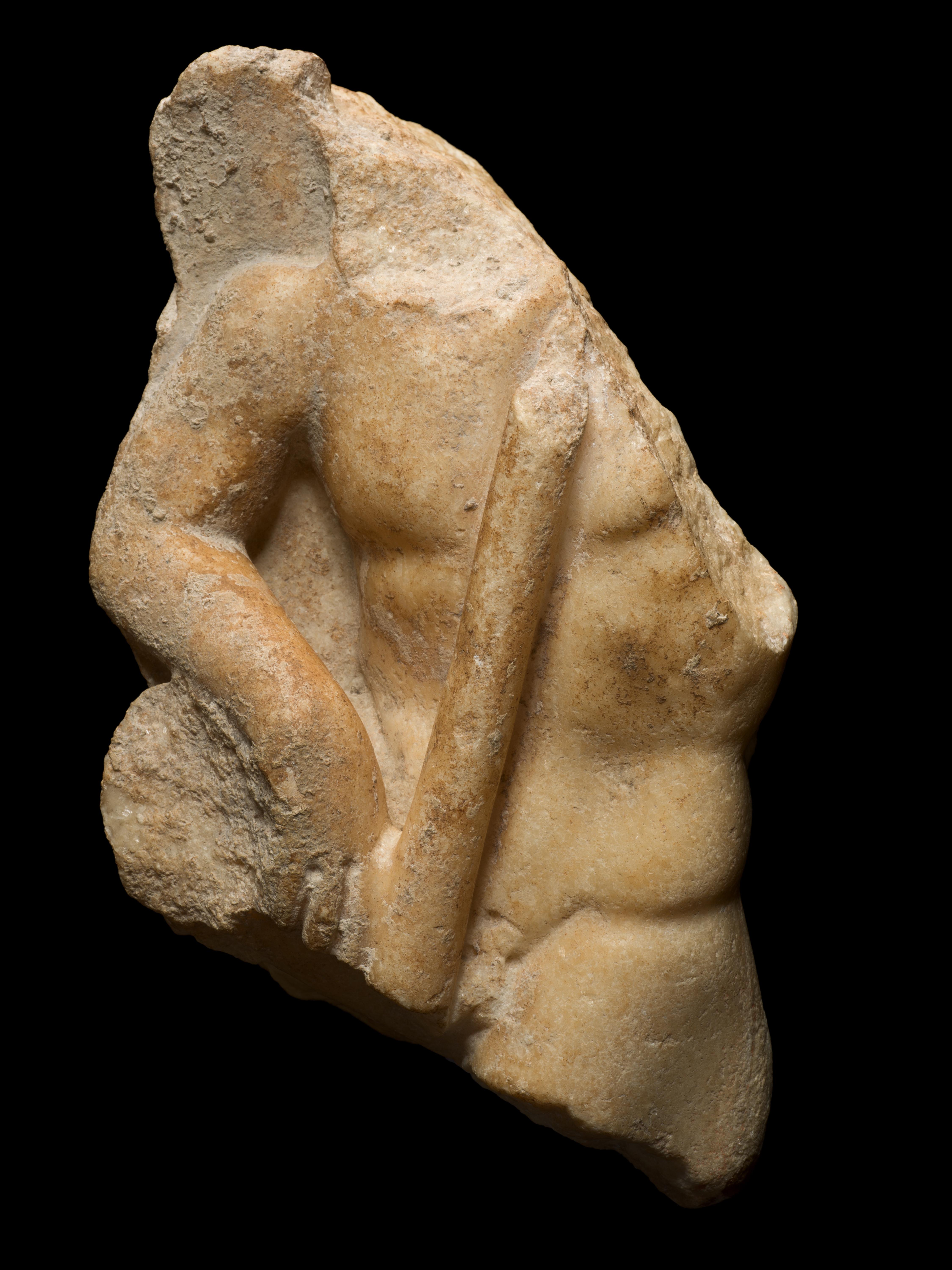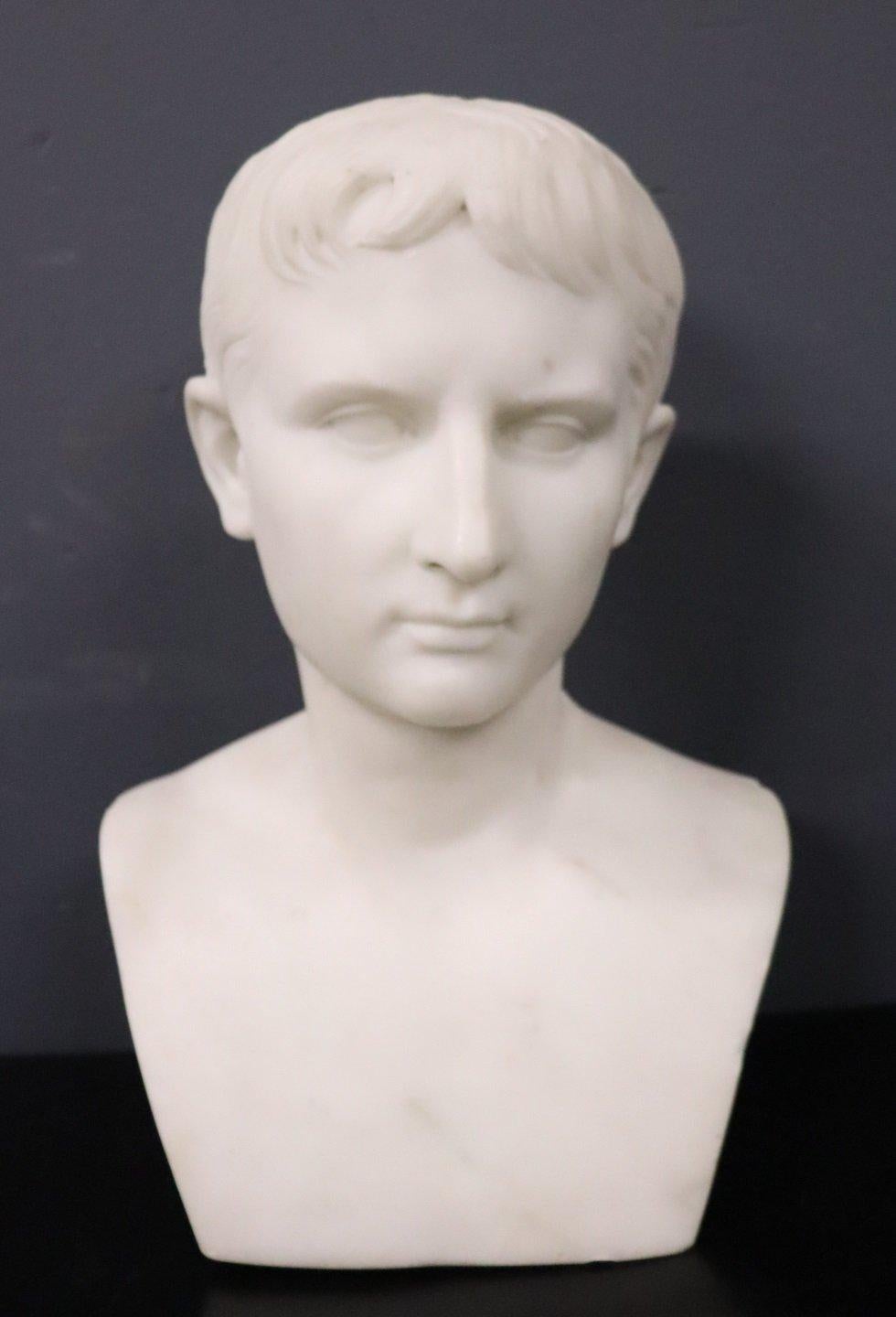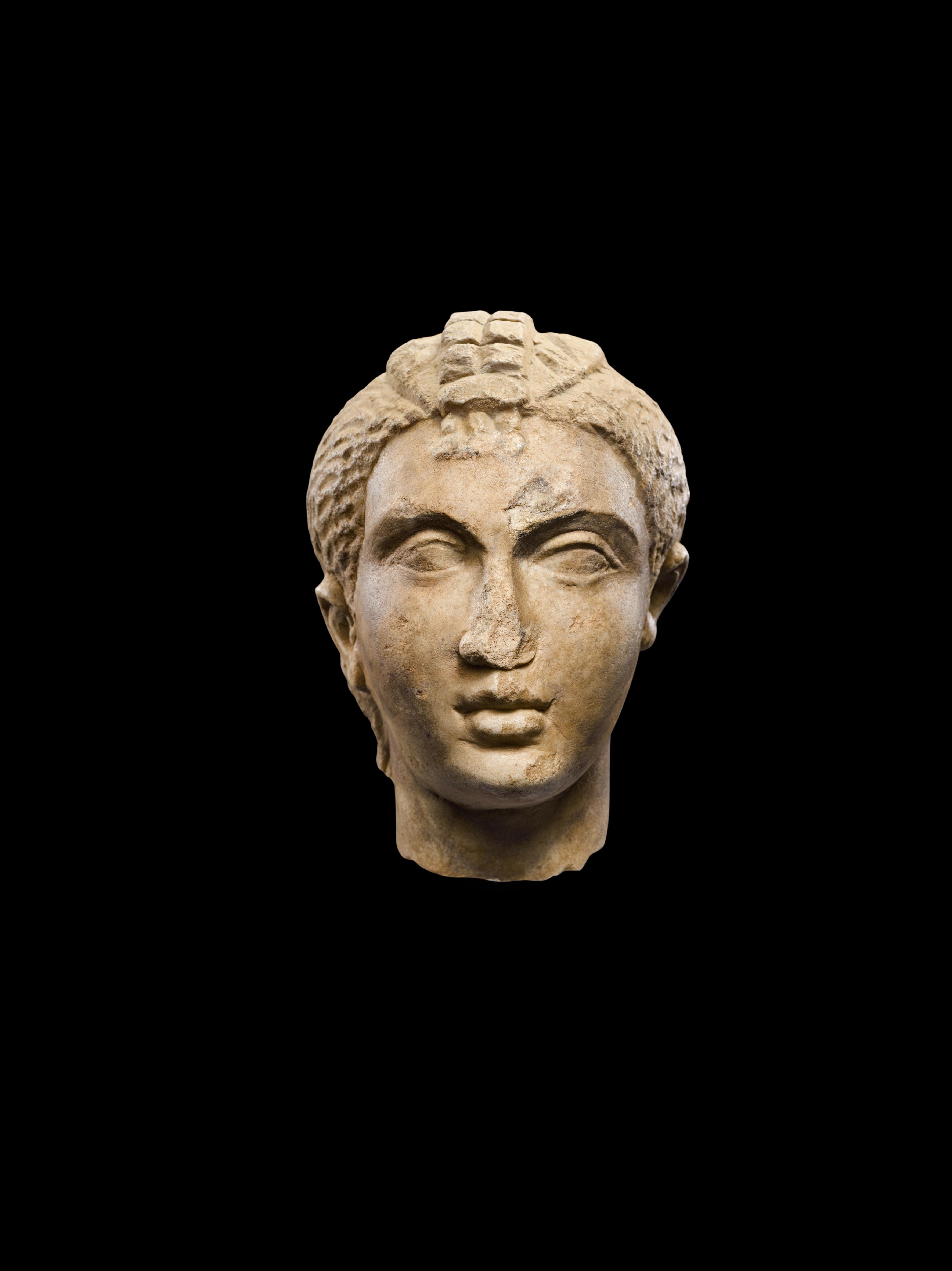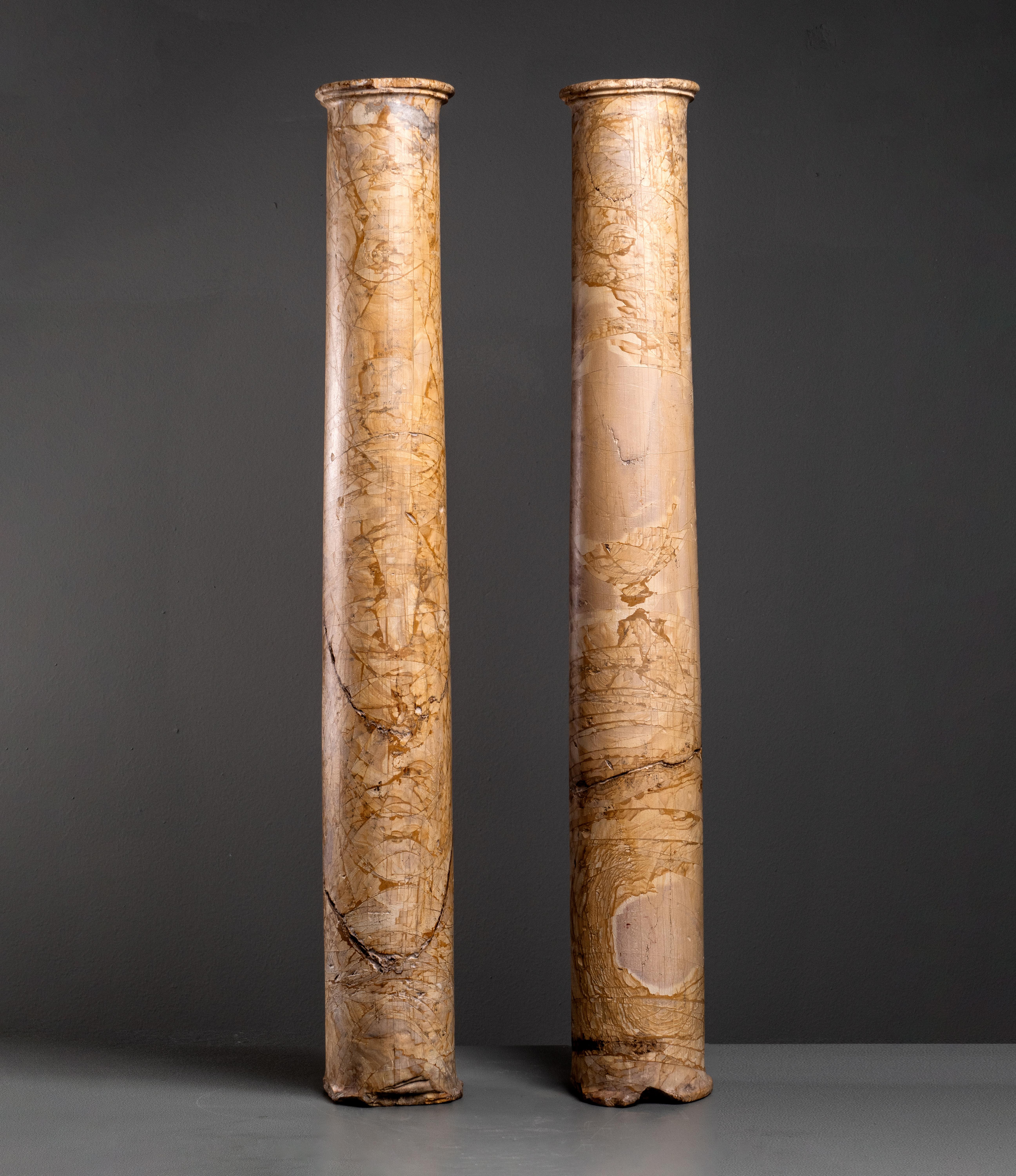Items Similar to Italian Porphyry Veneered Model of a Torso, after the Antique, Anthony Redmile
Want more images or videos?
Request additional images or videos from the seller
1 of 11
J. Antony RedmileItalian Porphyry Veneered Model of a Torso, after the Antique, Anthony Redmile1960
1960
About the Item
An Italian porphyry veneered model of a torso, after the antique by Anthony Redmile on marble-veneered pedestal. 20th century. Sitting on a marble veneered pedestal turning 360 degrees. Measures: 30.5" high x 28.5" wide (The torso) 68" high (Overall) Provenance: The Forbes Family collection.
- Creator:J. Antony Redmile
- Creation Year:1960
- Dimensions:Height: 30 in (76.2 cm)Width: 28 in (71.12 cm)Depth: 17 in (43.18 cm)
- Medium:
- Period:
- Condition:
- Gallery Location:New York, NY
- Reference Number:1stDibs: LU115124039552
About the Seller
5.0
Gold Seller
These expertly vetted sellers are highly rated and consistently exceed customer expectations.
Established in 1980
1stDibs seller since 2019
13 sales on 1stDibs
Typical response time: <1 hour
- ShippingRetrieving quote...Ships From: New York, NY
- Return PolicyA return for this item may be initiated within 7 days of delivery.
More From This SellerView All
- Margaret Foley (American, 1827-1877) Marble Bust "Head of Prophet Zephaniah"Located in New York, NYMargaret Foley (American, 1827-1877) Marble Bust "Head of Prophet Zephaniah" A rare and important marble bust head relief portrait on The Prophet Ze...Category
19th Century Figurative Sculptures
MaterialsMarble
- Rare and Important Italian White Marble Bust Sculpture of Jesus Christ, C. 1850Located in New York, NYRare and Important Italian White Marble Bust Sculpture of Jesus Christ, C. 1850 A truly exceptionally carved marble relief of Holy Jesus Christ. Ver...Category
19th Century Renaissance Figurative Sculptures
MaterialsMarble
- A Rare and Important American Marble Sculpture of Thomas Jefferson, Circa 1870Located in New York, NYA Rare and Important American White Marble Sculpture of Thomas Jefferson Holding The Declaration of Independence. Circa 1870, in the Manner of Horatio Stone (1808 –1875). Inscribed on scroll: 'The Declaration of Independence, It becomes necessary for one people to dissolve the political bands which have connected them with another. etc. etc. T. Jefferson. The present work is unsigned but is reminiscent of Horatio Stone's life-size marble figure of John Hancock...Category
19th Century Figurative Sculptures
MaterialsMarble
- A Rare and Important Bronze Bust of MichelangeloBy Albert-Ernest Carrier-BelleuseLocated in New York, NYAlbert-Ernest Carrier-Belleuse, (1824 1887) A Rare and Important Patinated Bronze Bust of Michelangelo On A Rouge Marble Base. Presenting an extraordinary and highly collectible ma...Category
19th Century Figurative Sculptures
MaterialsMarble, Bronze
- Thomas Ridgeway Gould, a Rare American White Marble Bust of a WomanBy Thomas Ridgeway GouldLocated in New York, NYThomas Ridgeway Gould (1818-1881) an extremely rare American White Marble Bust of A Woman, circa 1870. Depicting a beautiful woman with her hair double row, braided in a bun. Very...Category
19th Century Figurative Sculptures
MaterialsMarble
- Museum Quality French White Marble Roundel Relief of Emperor Napoleon III, 1860Located in New York, NYA Museum Quality French White Marble Roundel Relief of Emperor Napoleon III, circa 1860. The quality of this marble sculpture of Napoleon III is trul...Category
19th Century Figurative Sculptures
MaterialsMarble
You May Also Like
- Eighteenth-century Grand Tour marble bust of Faustina the YoungerLocated in London, GBSigned and dated: ‘F. Harwood Fecit 1764’ Collections: Probably commissioned by Alexander Gordon, 4th Duke of Gordon (1743-1827); Probably by descent at Gordon Castle, Banffshire to c.1948; Possibly acquired by Bert Crowther of Syon Lodge, Middlesex; Jacques Hollander (1940-2004); Christie’s, 5 December 2013, lot 101; Private collection; Sotheby’s, 2 July 2019, lot 106 Literature: John Preston Neale, Views of the seats of noblemen and gentlemen, in England, Wales and Scotland, London, 1822, vol.I, unpaginated. This marble copy of an ancient bust in the Musei Capitolini usually identified as Faustina the Younger, the daughter of Antoninus Pius and future wife of Marcus Aurelius, was made in Florence by Francis Harwood in 1764. Harwood was one of the most prolific suppliers of decorative marbles for the Grand Tour market and this finely worked example demonstrates the quality of luxury goods available to travellers to Italy. So often anonymous, this unusually signed and dated example, raises questions about the status of marble copies in the period and of sculptors such as Harwood who are known principally for ornamental work. Harwood’s origins remain obscure. He is documented living in Palazzo Zuccari with Joshua Reynolds and the Irish sculptor Simon Vierpyl at Easter 1752, he had certainly settled permanently in Florence by the following year, when he is recorded working with Joseph Wilton. He was admitted to the Florentine Academy on 12 January 1755 (as pittore Inglese, although he was described as scultore in the matriculation account). After Wilson returned to England in 1755 Harwood appears to have worked in a studio near SS. Annunziata with Giovanni Battista Piamontini who had made life-size copies of The Wrestlers and The Listening Slave for Joseph Leeson in 1754. In 1758 both sculptors were contracted to make a statue and a trophy to complete the decoration of the Porta San Gallo, Harwood completing a statue of Equality, installed the following year. By 1760 Harwood was on the brink of his most productive period as a sculptor, producing copies of celebrated antiquities for the ever-increasing audience of Grand Tour travellers and for the domestic market in London. In 1761 Harwood met the young architect James Adam who was in Italy specifically to make contact with suppliers for Robert Adam’s burgeoning practice back in Britain. The Adams offered a remarkably cohesive design package to their clients, encompassing not just architecture, but fixtures, fittings and furniture as well. Harwood was able to supply the brothers with marbles for their new interiors. At Syon, for example, Harwood produced a full-size copy of Michelangelo’s Bacchus for the new dining room the Adams had designed for Hugh Smythson, 1st Duke of Northumberland. Harwood seems to have also specialised in producing sets of library busts. In 1758 Charles Compton, 7th Earl of Northampton, a distinguished traveller commissioned a set of busts which remain in situ at Castle Ashby in Northamptonshire. It is perhaps no coincidence that the Adam brothers were producing designs for new interiors at Castle Ashby at this date. The set included representations of: Cicero, Julius Caesar, Marcus Aurelius, Faustina the Younger, Sappho, Seneca and Homer. Each of these busts Harwood seems to have replicated for multiple patrons, another Adam patron, Thomas Dundas...Category
18th Century Old Masters Figurative Sculptures
MaterialsMarble
- ANTIQUE ITALIAN ARCHITECTURAL FRAGMENT OF PLINTH IN 'BRECCIA MEDICEA' MARBLELocated in Milan, ITBRECCIA FRAGMENT PLINTH Italy, 18th Century Breccia medicea 55 x d 25 cm 21 3/4 x d 9 3/4 inCategory
18th Century More Art
MaterialsMarble
- ANCIENT ROMAN MARBLE RELIEF OF A MALE TORSO, ROME, 2ND/3RD CENTURY ADLocated in Milan, ITThis muscular male torso probably comes from a larger relief, which would have decorated the front part of a sarcophagus. It likely represents the figure of a satyr, standing, with t...Category
15th Century and Earlier Nude Sculptures
MaterialsMarble
- ANTIQUE ITALIAN NEOCLASSICAL MARBLE BUST OF EMPEROR OCTAVIAN, SIGNED CLERICILocated in Milan, ITItalian 19th Century marble bust depicting the young Emperor Octavian. The sculpture, carved in white Carrara marble, is an exquisite example of neoclassical works and shows a fascin...Category
Late 19th Century Figurative Sculptures
MaterialsMarble
- ANCIENT ROMAN MARBLE SCULPTURE PORTRAIT HEAD OF A GIRLLocated in Milan, ITPORTRAIT HEAD OF A GIRL Rome, circa 2nd/3rd century A.D. Marble height 18.4 cm height 7 1/4 in Provenance: Sotheby's, London, May 23rd, 1988, no. 240,...Category
15th Century and Earlier Figurative Sculptures
MaterialsMarble
- RARE PAIR OF ITALIAN PIETRA PAESINA COLUMNS, Italy, 19th CenturyLocated in Milan, ITRARE PAIR OF ITALIAN PIETRA PAESINA COLUMNS, Italy, 19th Century Pietra Paesina H 70 x Diam 9.5 cm H 27 1/2 x Diam 3 3/4 inCategory
19th Century Figurative Sculptures
MaterialsMarble
Recently Viewed
View AllMore Ways To Browse
After The Antique
Sculpture After Antique
After The Antique Marble
Antique Art Pedestal
Forbes Collection
Torso Italian
Marble Torso
Marble Sculpture Torso
Anthonies Antiques
Anthonys Antiques
Italian Torso Sculpture
Torso Model
Sculpture 360 Degree
Italian Porphyry
1960 Marble Italian Sculpture
Anthony Redmile
Antiques Torso
J Anthony Redmile
